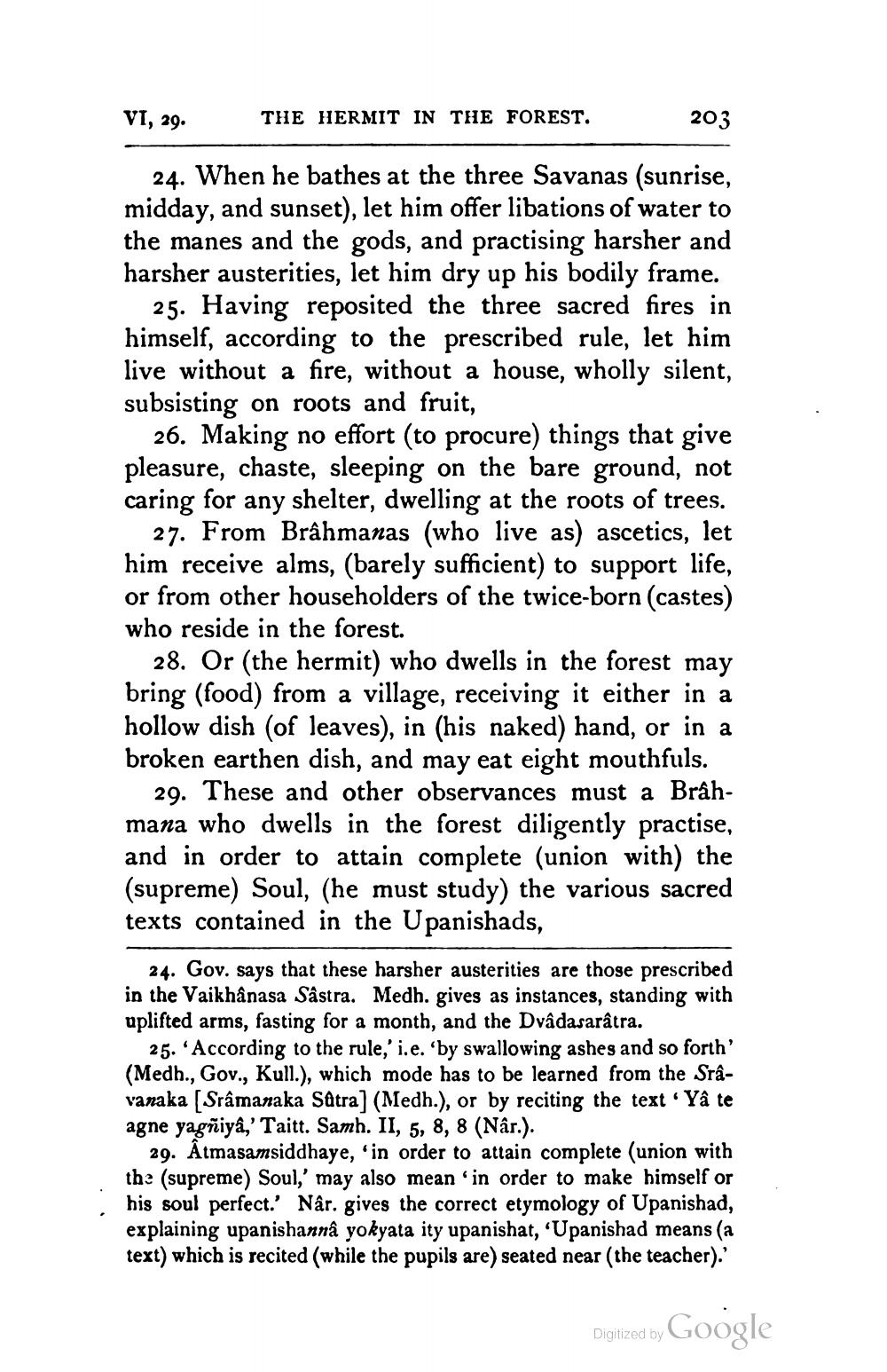________________
VI, 29.
THE HERMIT IN THE FOREST.
203
24. When he bathes at the three Savanas (sunrise, midday, and sunset), let him offer libations of water to the manes and the gods, and practising harsher and harsher austerities, let him dry up his bodily frame.
25. Having reposited the three sacred fires in himself, according to the prescribed rule, let him live without a fire, without a house, wholly silent, subsisting on roots and fruit,
26. Making no effort (to procure) things that give pleasure, chaste, sleeping on the bare ground, not caring for any shelter, dwelling at the roots of trees.
27. From Brâhmanas (who live as) ascetics, let him receive alms, (barely sufficient) to support life, or from other householders of the twice-born (castes) who reside in the forest.
28. Or (the hermit) who dwells in the forest may bring (food) from a village, receiving it either in a hollow dish (of leaves), in (his naked) hand, or in a broken earthen dish, and may eat eight mouthfuls.
29. These and other observances must a Brâhmana who dwells in the forest diligently practise, and in order to attain complete (union with) the (supreme) Soul, (he must study) the various sacred texts contained in the Upanishads,
24. Gov. says that these harsher austerities are those prescribed in the Vaikhanasa Sastra. Medh. gives as instances, standing with uplifted arms, fasting for a month, and the Dvadasarâtra.
25. According to the rule,' i.e. by swallowing ashes and so forth' (Medh., Gov., Kull.), which mode has to be learned from the Sravanaka (Srâmanaka Sätra] (Medh.), or by reciting the text. Yâ te agne yagñiyâ,' Taitt. Samh. II, 5, 8, 8 (Nár.).
29. Åtmasamsiddhaye, 'in order to attain complete (union with the (supreme) Soul,' may also mean'in order to make himself or his soul perfect.' Nár. gives the correct etymology of Upanishad, explaining upanishannâ yokyata ity upanishat, 'Upanishad means (a text) which is recited (while the pupils are) seated near the teacher).'
Digitized by Google




